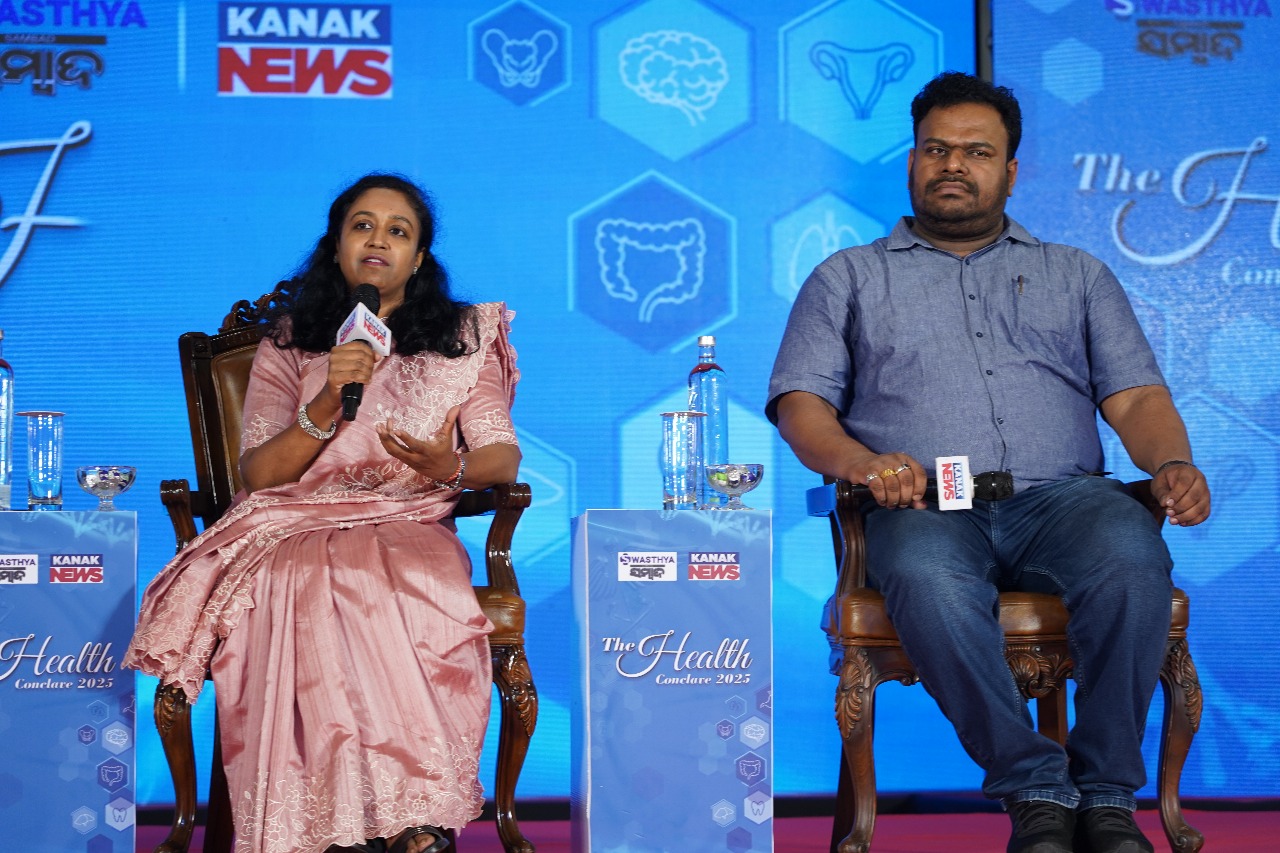Women’s health is a complex, multifaceted issue that requires attention and care from various perspectives, particularly when it comes to gynecology. To shed light on the current challenges women face regarding their reproductive health, we brought together two renowned gynecologists, Dr. Bharat Bhushan and Dr. Sini Venugopal, who share their insights in The Health Conclave 2025 by Swasthya Sambad and Kanak News on the state of women’s health.
“Women’s health is not just about reproductive issues, but also about their overall well-being.”
Dr. Bharat Bhushan, an experienced gynecologist, highlights that women’s health challenges extend far beyond pregnancy and childbirth. “We see a growing awareness of the importance of preventive care,” he states. “However, there is still a considerable gap in early diagnosis for many conditions that affect women, like endometriosis and fibroids.”
He points out that awareness about menstrual disorders, sexual health, and conditions like polycystic ovary syndrome (PCOS) is slowly increasing but remains insufficient. “Many women still face stigma when it comes to discussing reproductive health problems, which leads to delayed treatment and exacerbates the condition,” Dr. Bhushan adds.
He also mentions the rising concern about mental health in women, particularly post-partum depression and the effects of hormonal imbalances. “Mental health is often not given the attention it deserves, but the connection between mental well-being and physical health is undeniable,” Dr. Bhushan emphasizes.
“Access to education and healthcare plays a pivotal role in overcoming women’s health challenges.”
Dr. Sini Venugopal shares her thoughts on the accessibility of healthcare and how that plays a significant role in tackling women’s health challenges. “We need to ensure that every woman, especially those in rural and underserved areas, has access to quality healthcare and education. Women are often unaware of their own health conditions due to a lack of knowledge or miscommunication about their bodies,” she explains.
Dr. Venugopal draws attention to the alarming increase in cervical cancer rates in some parts of the world. “One of the most preventable cancers, cervical cancer, is still affecting thousands of women due to lack of screening and vaccination programs. Women must be educated on the importance of regular screenings and HPV vaccination, which can save lives.”
She further elaborates on the impact of lifestyle changes on women’s health. “With the increasing prevalence of sedentary lifestyles, poor dietary habits, and stress, we see a rise in non-communicable diseases like diabetes, hypertension, and obesity in women,” Dr. Venugopal says. “These diseases, if not managed well, can contribute to complications in pregnancy and overall long-term health issues.”
The Role of Technology and Awareness:
Both doctors agree that technology and media play a significant role in raising awareness about women’s health. Dr. Bhushan acknowledges, “Social media has become a powerful tool for spreading information, but it also has the potential to mislead. It is essential that women turn to verified medical professionals for accurate information.”
Dr. Venugopal believes that with technological advances like telemedicine, women now have greater access to healthcare professionals, regardless of their geographical location. “Telemedicine has been a game-changer for women who live in remote areas, allowing them to consult with gynecologists and get expert advice without needing to travel long distances,” she says.
Reproductive Health and Family Planning:
Another topic discussed by both doctors is the issue of family planning. “While there are many contraceptive options available, there is still a lot of misinformation about their use,” Dr. Bhushan remarks. “Education about safe family planning practices and the variety of contraceptive methods is crucial for women to make informed choices.”
Dr. Venugopal also emphasizes that family planning is not just about contraception but also about a woman’s choice regarding her reproductive life. “Every woman should have the right to decide when and how many children she wants to have, and healthcare providers should support those decisions with accurate guidance and options,” she explains.
The Need for Holistic Care:
Both experts emphasize the need for a holistic approach to women’s health. Dr. Bhushan says, “A woman’s health is influenced by a wide range of factors — from genetics and lifestyle to socioeconomic conditions and psychological health. It’s important to consider the whole woman, not just her reproductive system.”
Dr. Venugopal concurs, adding, “We cannot isolate gynecology from other aspects of healthcare. Nutrition, mental health, and social factors all play an integral role in ensuring a woman’s overall well-being.”
As Dr. Bhushan and Dr. Venugopal discuss, women’s health challenges are numerous, and while progress is being made, there is still much work to be done. From better access to healthcare to improved education and awareness, the road to ensuring better health for women is ongoing. Both doctors stress the importance of a multifaceted approach to solving these challenges, combining medical advancements, education, and support for mental and physical well-being.
In their words, “The key to overcoming women’s health challenges lies in collaboration, continuous education, and empowering women to take charge of their own health.”


